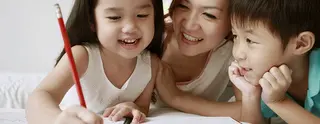
It is rather puzzling the number and variety of puzzles that exist. There are basic wooden peg puzzles, jigsaw puzzles, number puzzles (like Sudoku) and word puzzles (like crosswords). And for every age and every personality there is a puzzle. While their variety seems limitless, what is not puzzling is the one very important trait they all have in common: Puzzles are not just good fun, but can be good for you.
The popularity of puzzles is nothing new. Even modern puzzles have a history. Jigsaw puzzles date to the 1700s when John Spilbury was credited with creating the puzzle to teach geography. The oft-ubiquitous crossword puzzles that we see in newspapers date to the late 1800s, and while the modern form of Sudoku popped up in the late 20th century, another version of the game, according to the French publication Pour La Science, can be traced back to France a century before.
In addition to providing hours of fun, solving puzzles also give our brains a workout. Puzzles are a lifelong tool for brain health, beginning in childhood and lasting well through to our senior years.
Peg and jigsaw puzzles: Starting with the very first puzzles we encounter in our lives, such as peg puzzles, we are learning and developing mastery over several aspects of development. According to Pam Myers, BSEd, writing for the Child Development Institute, puzzles can be extremely helpful to a child’s mental and physical development. From early on, gross motor skills can be enhanced with “stacking blocks and other large, easily-manipulated puzzles.” Along with those skills are hand-eye coordination and shape recognition.
As the child grows so does the style of puzzles. Jigsaw puzzles develop fine motor skills and problem solving. Fine motor skills “require small, specialized movements that puzzles provide,” and are “necessary for handwriting and other important achievements.”
And as a child looks at various pieces and figures out where they fit or don’t fit, he or she is developing problem solving skills, “It either works and fits or it doesn’t. So puzzles teach children to use their own minds to figure out how to solve problems and think in a logical way.”
Word puzzles: Crosswords, word searches, jumbles, cryptograms, scrabble - the list goes on and on, and so do the benefits. The Fisher Center for Alzheimer’s Research Foundation cited researchers at the University of California, Berkley that “reading, writing, doing crossword puzzles and solving challenging puzzles may be linked to a lower risk of Alzheimer’s disease."
Dr. Theresa Sumberac wrote in Clinical Correlations, the NYU Langone Online Journal of Medicine, that “leisure activities such as crossword puzzles, card games, and reading provide an avenue to stimulate the mind thus delaying the onset of dementia with relatively few negative consequences."
In addition to possibly lowering the risk of Alzheimer’s, Robyn Reisch reports in Iheartintelligence.com that crossword puzzles also can relieve stress by “engaging our minds deeply” and strengthen our relationships. According to Reisch, “solving puzzles in a group can also strengthen social bonds by creating a shared memory and a concrete group accomplishment.”
Number puzzles: Sudoku is probably one of the best known number puzzles today. According to Brian Lee, Chief of Product Management at Lifehack, playing this game daily does more than just exercise your brain. It can improve memory and logic, stimulate your mind and increase one’s concentration. Psychology Today cites that the Alzheimer's Association in the United States has also endorsed Sudoku as “a preventive strategy against the dreaded disease.”
So break out a puzzle, any kind. Not only will they provide hours of fun, but they will sharpen your mind too.



